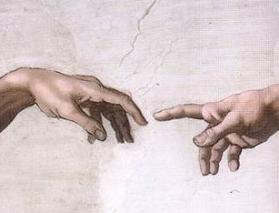Perhaps you have seen reports of the recent road rage incident in Florida, where one driver followed another to his home. The presumed aim was to get the other man’s address so as to report his unsafe behavior behind the wheel. Actually, both parties called 911 to complain of the other’s crazy driving. The driver in the front car warned CNN that his gun was “cocked and locked.” Once home, he took his gun and shot dead the driver who followed him. The wife, daughter and grandson of the man who was shot watched in horror and were forced to get out of the vehicle and wait until police arrived.
Take a look at this CNN report documenting several incidents of road rage caught on tape. According to a Washington Post poll in 2013, more than 1 out of 10 drivers experience “uncontrollable anger toward another driver.” The poll indicates that the rate has “doubled” since 2005. According to an article about the poll’s findings, reasons for road rage range from a sense of entitlement and power to a sense of feeling threatened by other drivers’ erratic behavior to angst of driving in high speed conditions with “unpredictable strangers.”
In what follows, I will address the first of the reasons noted above—the sense of entitlement and power. Perhaps it is a natural reaction to be provoked when others invade our space and our comforts are at stake. What is becoming increasingly unnatural is the decrease of space in our hearts for others to be close. It is vitally important that we clear space in our hearts the more crowded our roads become. We crowd our hearts by thinking our space matters more than that of others, that our time is more precious than others, and that we need to take from them in order to increase our measure of time and space.

As a Christian, I am especially concerned when I see motorists driving crazily in cars bearing Christian bumper stickers. How seriously do we Christians take the incarnation? Jesus did not crash into others, nor cut people off, on the busy highways of life. He did not cast stones or expletives when people cut him off, even taking away his space and time. He had relational space within his being given his confidence in his Father, whom Jesus knew allotted to him his hours and days. He came in the fullness of time (Galatians 4:4), knowing that the Father would complete his purposes for him no matter how great the trials (See Psalm 22). And so, Jesus could make space and time for us.
We drive faster cars to get to our destinations more quickly, but why? Because time is money, or time is eternity? Why can’t we honor the 2 second rule when driving? How does sitting on someone’s bumper get us someplace faster than backing away a bit? Can we not learn to make space and time for others?
Colin Gunton once remarked that we have so displaced eternity that we seek to make an eternity out of time. Thus, we try and squeeze as much out of the turnip of time that we can before it is too late. Given the way we are driving today, we must always be late.
Road rage tells us a lot about the state of our souls in our society. We are getting smaller and smaller inside. Our souls are shrinking, even while our egos expand.
All too often, we live behind the wheel of illusion that the metal and glass fortresses we drive are impenetrable, or the illusion that we are completely anonymous in our cars and trucks, or the illusion that a life-altering road incident could never happen to us. But we are taking our physical, social and eternal lives in our hands as we drive every day, ready to erupt. What does a man gain if he controls the road at the expense of others? The risks are far too costly. Even if he does not lose control of the wheel, he has lost control of his anger and sense of civil dignity, removing the safeguard on his soul (Proverbs 4:23; Matthew 16:26).
















